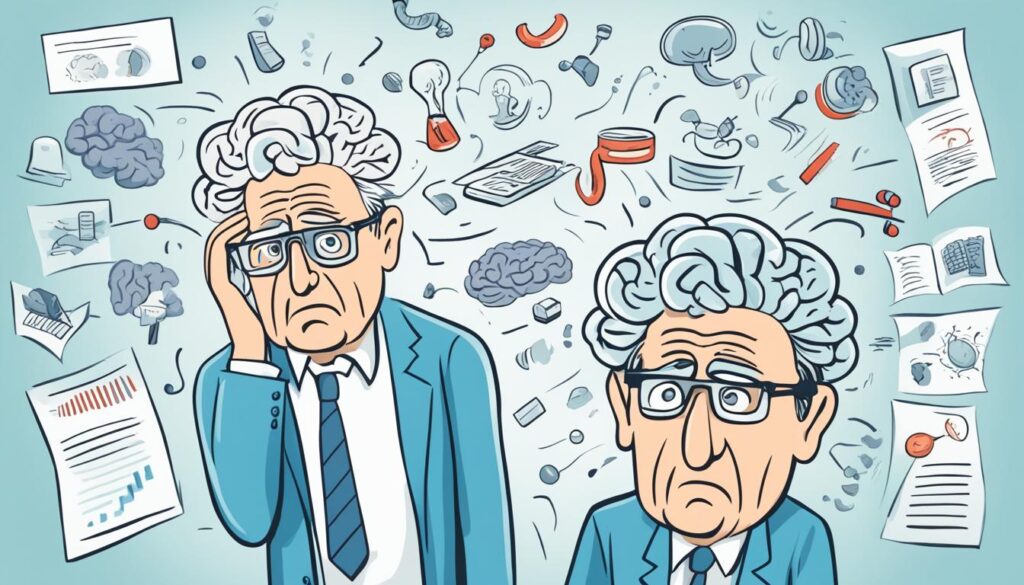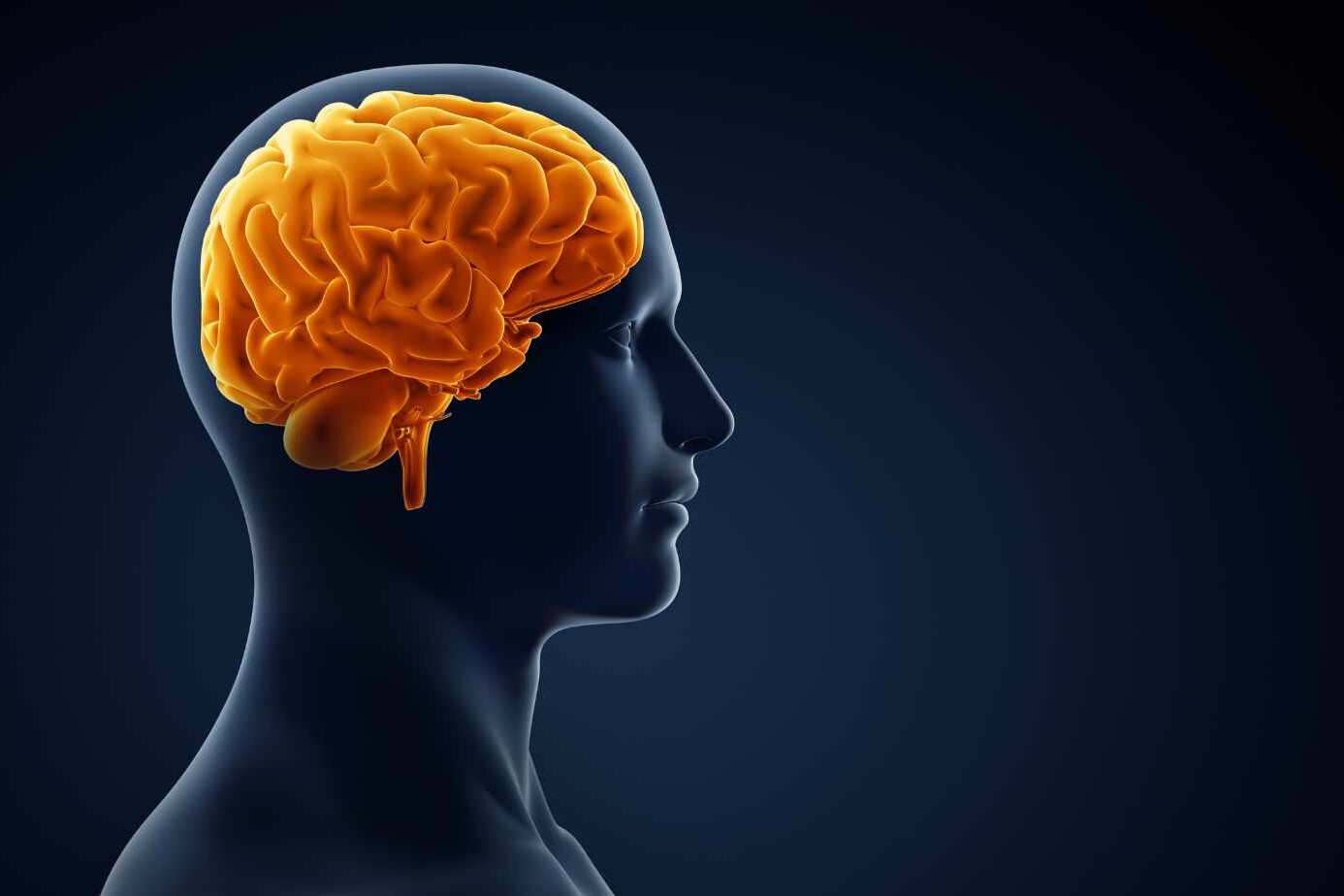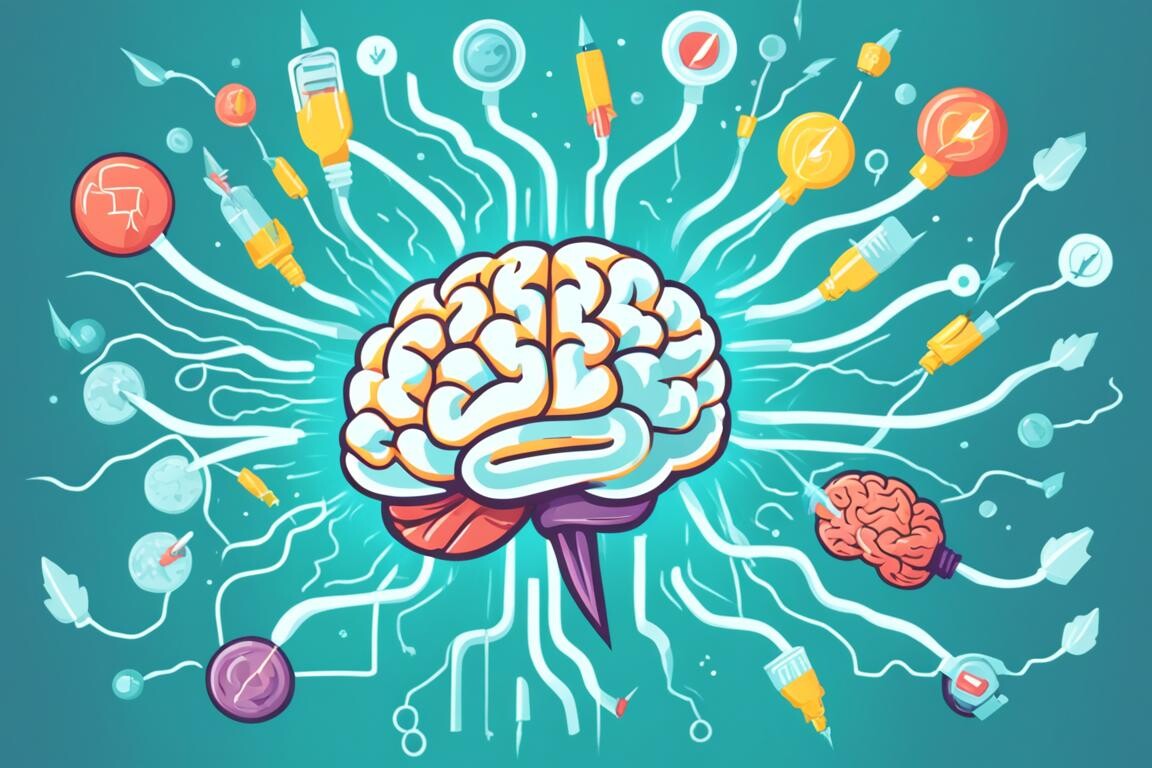Encephalopathy is a change in how the brain works. It can cause various mental and physical problems. Symptoms like confusion, restlessness, or changes in awareness are common.
It’s caused by several conditions like liver problems or infections. Early signs need quick attention. This helps avoid more severe problems and gets better results. We’ll talk about the usual signs and what might cause them.
Table of Contents
ToggleWhat is Encephalopathy?
Encephalopathy is a big word for a brain problem. It causes the brain to work differently, either for a little while or forever. This issue can show up in many ways, like not thinking clearly or having trouble moving. Things like infections, bad metabolism, or even a bump on the head can lead to encephalopathy. Also, health problems with the liver or kidneys are common causes.
Types of Encephalopathy
Different kinds of encephalopathy exist, each with its unique reasons and effects. Here are a few common types:
- Hepatic encephalopathy: It happens when a damaged liver can’t get rid of harmful substances that then reach the brain.
- Chronic traumatic encephalopathy (CTE): People get this from many head hits, often seen in sports like boxing and football.
- Hypoxic-ischemic encephalopathy: This type comes from not enough oxygen or blood to the brain, causing harm.
- Metabolic encephalopathy: Due to body chemical problems, often from liver or kidney issues.
- Infectious encephalopathy: It’s from brain infections, like bacterial or viral meningitis.
- Toxic encephalopathy: Due to harmful toxins or chemicals affecting the brain.
These are just a few kinds of encephalopathy, and there are many more. Knowing the type is key to getting the right help.
Common Encephalopathy Symptoms
Mental State Changes
Encephalopathy can change how we think and remember things. It leads to confusion, memory loss, and shifts in our personalities. People with this condition may also have trouble focusing and speaking clearly.
Physical Symptoms
Encephalopathy doesn’t just affect the mind. It also brings physical changes like weak muscles and uncontrollable twitches. Other encephalitis symptomsinclude issues with eye movements and problems swallowing. Feeling tired and experiencing seizures are also common.

Encephalopathy Symptoms: Early Warning Signs
At first, encephalopathy may show subtle symptoms that are easy to miss. Key signs that something is wrong are:
- Cognitive changes: You might see small shifts in memory, focus, and how fast you react. These can signal encephalopathy is early stages.
- Personality shifts: Someone might act confused or forget more than usual. Mood changes without reason could point to encephalopathy.
- Difficulty with tasks: Problems could pop up with writing, figuring things out, or other thinking tasks.
The early signs are easy to overlook. But, picking up on them is key to early treatment and limiting brain damage. So, if you or someone you know is feeling any of these early warning signs, get medical advice very soon.
Causes of Encephalopathy
Encephalopathy often starts with liver disease, like cirrhosis. Cirrhosis makes the liver scarred and hard, not working right. This lets toxins, such as ammonia, build up in the blood. Too much of these toxins can cause hepatic encephalopathy.
Liver Disease and Cirrhosis
When the liver can’t get rid of toxins, they stay in the blood. This includes ammonia, affecting the brain and causing hepatic encephalopathy. Patients with liver issues or cirrhosis are more likely to get encephalopathy because their livers can’t work well.
Acute Liver Failure
Acute liver failure is sudden and can happen for different reasons, like viral hepatitis. When the liver stops working, toxins stay in the blood. This quickly affects the brain, causing serious symptoms of encephalopathy.
Portosystemic Shunts
If blood doesn’t flow through the liver because of shunts, it can lead to encephalopathy. Shunts can occur with cirrhosis or after surgeries like TIPS. Without the liver filtering the blood, toxins build up and harm the brain.

Risk Factors and Precipitating Conditions
Encephalopathy can start because of different issues or events, like infections. Infections like viral meningitis can directly affect the brain, leading to encephalopathy. And, systemic infections can cause more liver or kidney problems. This makes it harder for the body to clear harmful toxins.
Medications and Toxins
Some medications and being around certain toxins can up the risk of encephalopathy. Drugs that make you sleepy or some painkillers can make encephalopathy symptoms worse. And, coming into contact with things like heavy metals or carbon monoxide can hurt the brain. This can cause encephalopathy.
Metabolic Imbalances
If your body’s metabolic balance is off, it can also cause encephalopathy. This might happen if your organs aren’t working right or if you’re really dehydrated. For example, kidney failure or very high blood sugar can stop your brain from getting what it needs. This can spur on encephalopathy.
Diagnosing Encephalopathy
Diagnosing encephalopathy uses clinical checks and tests. Doctors do a full exam. They look at mental, nerve, and movement functions. They ask family about any behavior or thinking changes.
Clinical Assessments
Doctors check the patient’s mind closely. They check awareness, direction, and recall. The team also looks at the patient’s talking, moving, and reflexes for issues.
Doctors get details on the patient’s past sickness, or contact with harmful things. This helps find encephalopathy causes.
Imaging and Laboratory Tests
Doctors may order tests like:
- Imaging tests: CT or MRI to check brain for issues.
- Blood tests: They check ammonia, body salts, and liver stuff for clues on encephalopathy causes.
- EEG: A test to look for brain issues through electric signals.
- Lumbar puncture: They take spinal fluid to test for infections or inflammation that might cause encephalopathy.
- Specialized tests: If needed, more tests like gene checks or liver function tests might be done to find the main issue.
These tests together help doctors find the type of encephalopathy. This lets them plan a right treatment to deal with the causes and help with symptoms.

Treatment and Management Strategies
Encephalopathy treatment is a mix of steps to handle its causes, cut down toxins in blood, and ease your symptoms. This mix involves medicines, changing how you live, and giving supportive help.
Treating encephalopathy linked to liver issues, like hepatic encephalopathy, often focuses on lowering ammonia in the blood. Doctors use drugs like lactulose, rifaximin, or neomycin to help with this. They might also advise eating less protein to lessen ammonia production.
Managing encephalopathy from metabolic problems or organ failure means dealing with the base issue. This can include drugs to fix electrolyte levels, help organs work better, or fight infections. These treatments target what’s causing the problem.
For cases caused by sudden issues, like a brain injury or stroke, the care is about easing the brain, preventing more damage, and supporting recovery. This might include fluids through a vein, meds to stop seizures, or a machine to help breathing if needed.
Medications for general encephalopathy are used to tackle your main symptoms, like being confused, upset, or having seizures. You might get anti-psychotic, benzodiazepines, or anticonvulsant medicines. It’s key to team up with your doctor to pick the right meds and doses for you.
No matter what’s causing your encephalopathy, the main aim is to make you stable, treat the main factors, and help your brain work better. This work helps you get back to living your life fully.
Conclusion
Encephalopathy is very serious and affects your brain’s work and health. Knowing the early signs helps you get quick medical help. This might help you get better, depending on the cause.
Problems like chronic traumatic encephalopathy from hits to the head or hepatic encephalopathy because of liver issues need early attention. Learning the signs and risks lets you act fast. You can work on the root issue and avoid more harm to your brain.
Encephalopathy is tricky and has many sides. But, with the right care, people can control the symptoms and keep a good life. Knowing about encephalopathy helps you spot signs early and get the help you need. This is key to safeguarding your brain health.
FAQ
What is encephalopathy?
Encephalopathy is a term for a change in brain function. It can show up as mental or muscle symptoms. These can include confusion or coordination problems.
What are the common types of encephalopathy?
Common types include hepatic, traumatic, and hypoxic-ischemic. Each has its own causes and challenges.
What are the common symptoms of encephalopathy?
It can bring on mental changes like confusion and physical signs like muscle twitches. Seizures may also happen.
What are the early warning signs of encephalopathy?
Early signs include small changes in thinking or behavior. You might feel tired, nauseous, or have weak muscles.
What are the common causes of encephalopathy?
Liver problems, infections, and toxins can lead to encephalopathy. Liver disease is a main cause, along with acute liver failure.
What are the risk factors and precipitating conditions for encephalopathy?
Infections, toxins, and certain meds can up the risk. So can metabolic problems, like from organ failure or dehydration.
How is encephalopathy diagnosed?
Doctors use tests and exams to diagnose it. Clinical tests and brain scans might be done. Blood tests are also used to find the cause.
How is encephalopathy treated and managed?
Treatment varies by cause and symptom severity. It focuses on fixing the root issue, easing toxin build-up, and managing symptoms.
Source Links
- https://www.healthdirect.gov.au/encephalopathy
- https://my.clevelandclinic.org/health/diseases/21220-hepatic-encephalopathy
- https://www.ncbi.nlm.nih.gov/books/NBK430869/
- https://www.webmd.com/brain/what-is-encephalopathy
- https://www.aurorahealthcare.org/services/neuroscience/neurology/neurological-conditions/encephalopathy
- https://www.hopkinsmedicine.org/health/conditions-and-diseases/encephalitis
- https://www.mayoclinic.org/diseases-conditions/encephalitis/symptoms-causes/syc-20356136
- https://www.advocatehealth.com/health-services/brain-spine-institute/brain-care-center/conditions-treatments/encephalopathy
- https://www.ncbi.nlm.nih.gov/pmc/articles/PMC8917954/
- https://www.medicinenet.com/encephalopathy/article.htm
About The Author

Medically reviewed by Dr. Chandril Chugh, MD, DM (Neurology)
Dr. Chandril Chugh is a U.S.-trained, board-certified neurologist with expertise in diagnosing and managing neurological disorders, including migraines, epilepsy, Parkinson’s disease, and movement disorders. His clinical focus includes evidence-based neurological care and patient education.
All content is reviewed for medical accuracy and aligned with current neurological guidelines.




